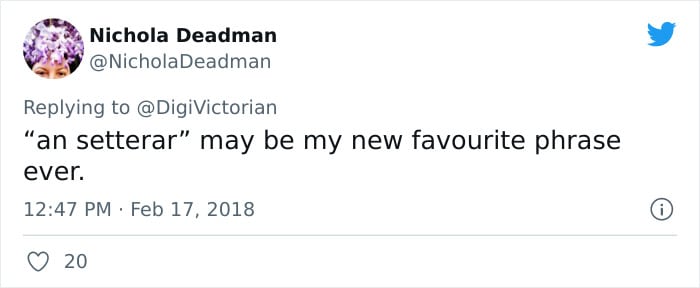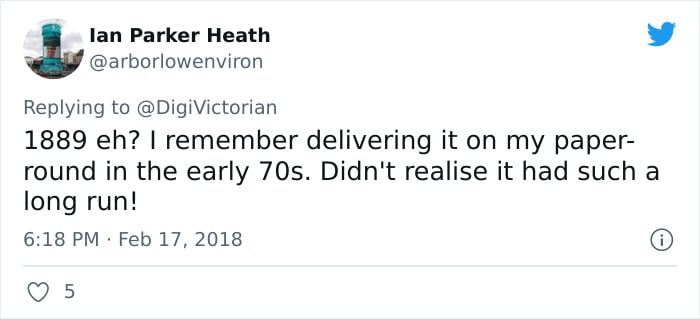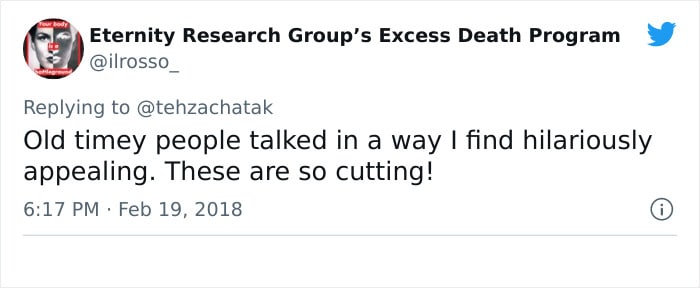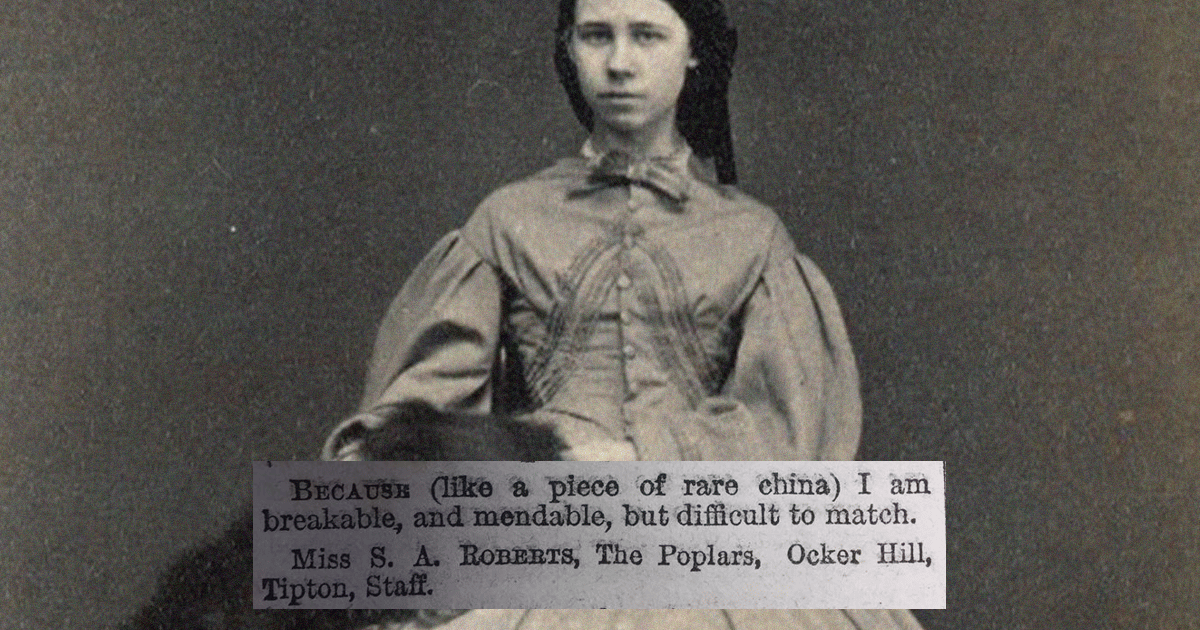Being a woman in the Victorian era is easier than being a man. Public ridicule was the norm for single ladies of those times.
Thankfully, many of them grew thick skin because of it, and wouldn’t listen to jokes about their relationship status. They responded in a witty way.
The 1889 edition of Tit-Bits Magazine was studied by a historian. The publishers offered a prize to the spinster providing the best answer to the question of her being single. But they couldn’t pick just one.
The main duty of women in Victorian society was to marry and serve their husbands.
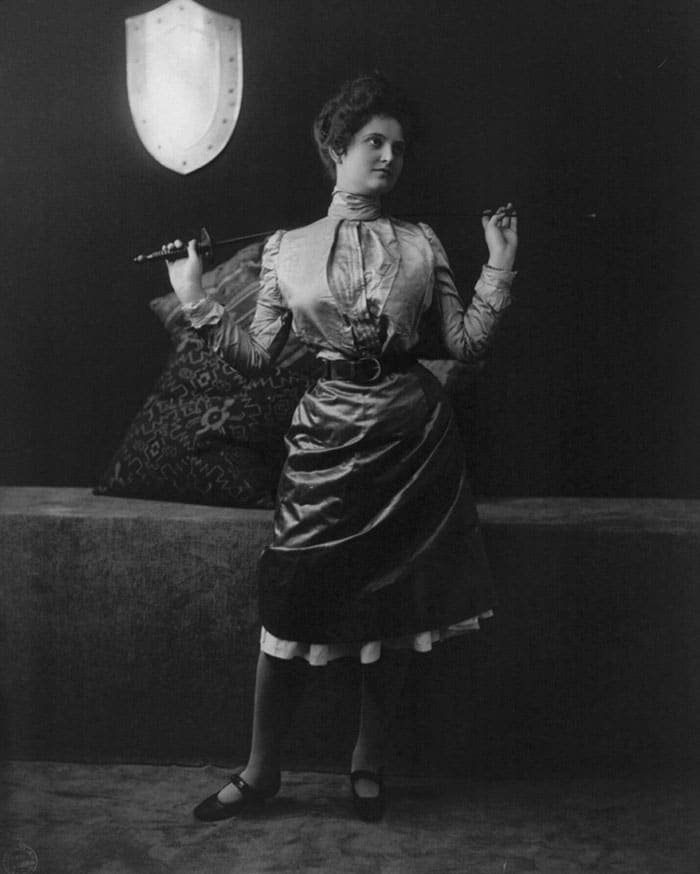
This old article shows that not all of them did.
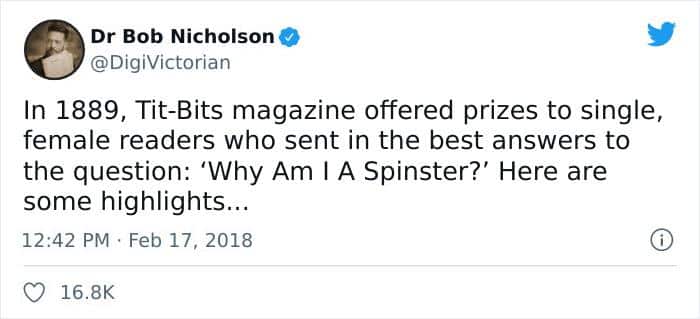
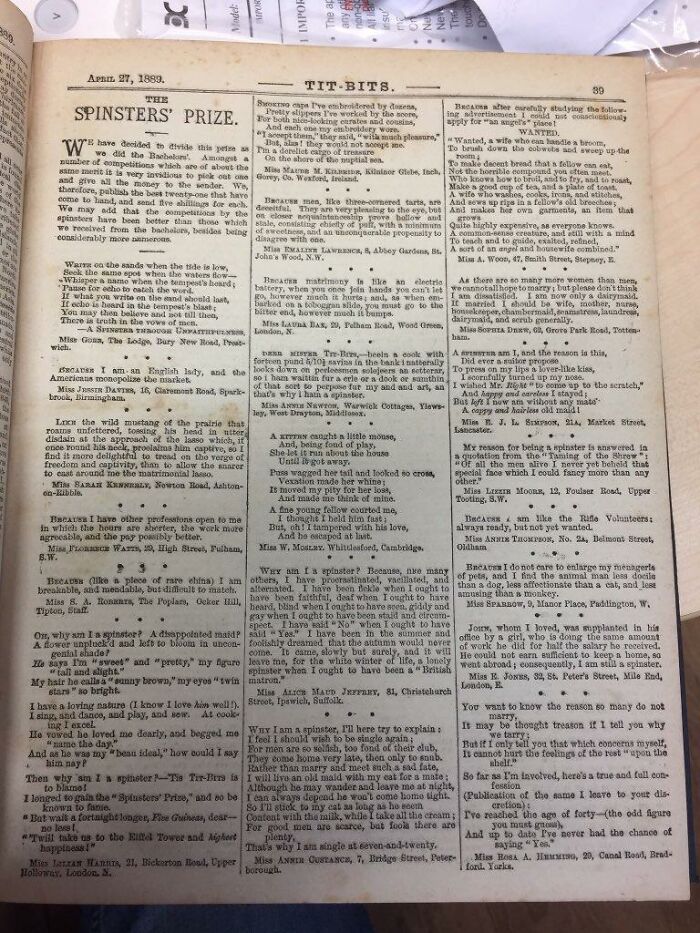
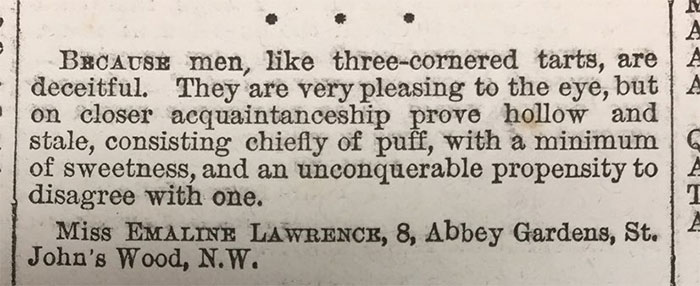
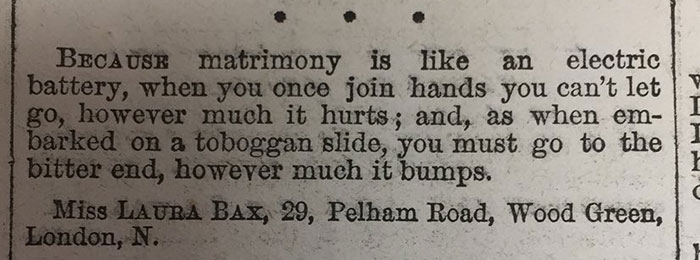
We were able to get in touch with him. Nicholson was kind enough to chat with us about his post.
“I’m a historian who specializes in the history of Victorian pop culture,” Dr. Nicholson told. “I was searching through old issues of Tit-Bits magazine in search of nineteenth-century jokes, and I happened across the ‘Why am I a Spinster?’ competition by accident. This is one of the best things about researching Victorian magazines — you never know what you might find on the next page!”
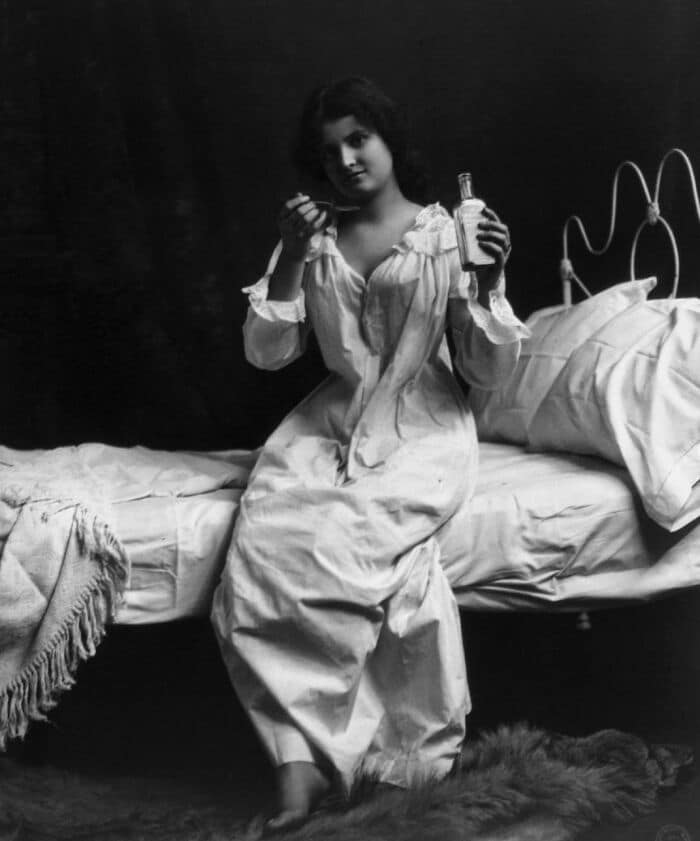
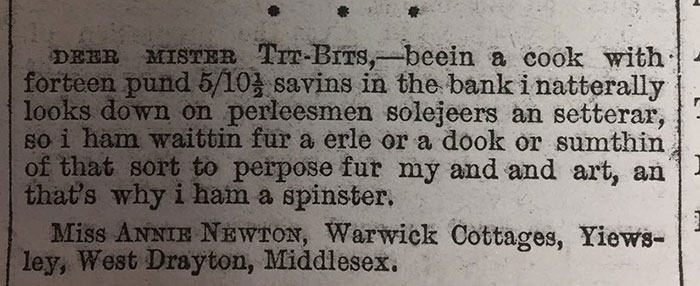
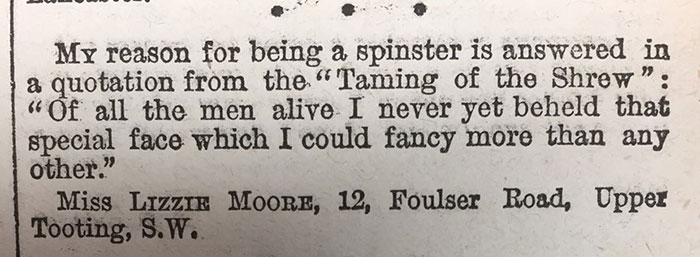
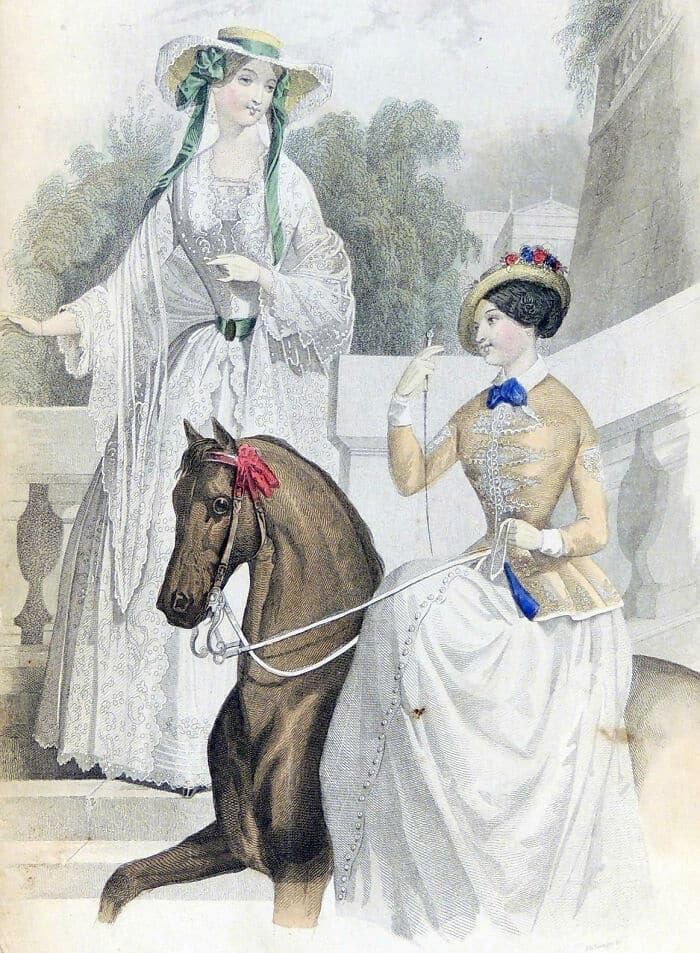


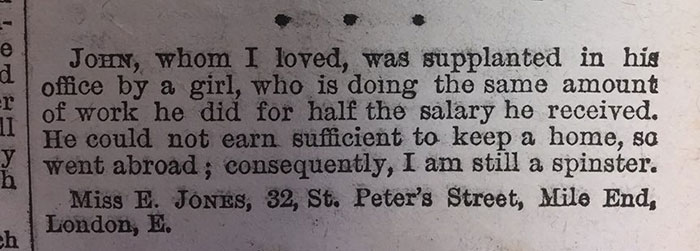
To understand the roles of women and men in Victorian England, we need to look at what John Ruskin wrote.
“The man’s power is active, progressive, defensive. He is eminently the doer, the creator, the discoverer, the defender. His intellect is for speculation, and invention; his energy for adventure war, and for conquest,” Ruskin said. “But the woman’s power is for the rule, not for battle – and her intellect is not for invention or creation, but for sweet ordering, arrangement, and decision… she must be enduringly, incorruptibly good; instinctively, infallibly wise, wise not for self-development, but for self-renunciation: wise, not that she may set herself above her husband, but that she may never fail from his side.”
The strict gender ideals and stereotypes that were common back then, were highlighted in this quote.
The definition of the natural characteristics of women and men is what historians call separate spheres. Women were considered weaker than men because they were better suited to the domestic sphere.
Before 1870, any money made by a woman through a wage, investment, gift, or inheritance instantly became the property of her husband once she was married, with the exception of a dowry. The wife’s identity was absorbed into her husband’s, making them one person under the law.
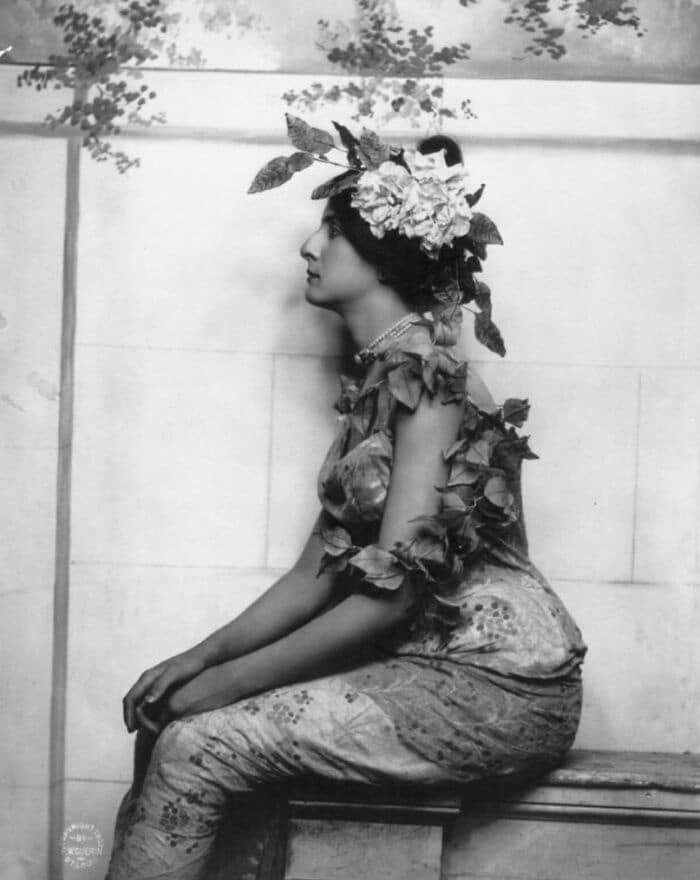

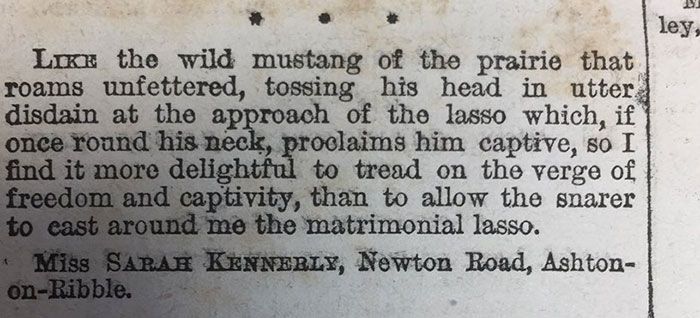
There were exceptions. “I love finding evidence that challenges our assumptions about life in the nineteenth century,” Dr. Nicholson said.
“Some people imagine Victorian women to have been prudish, reserved, and submissive to men — but many of the ‘spinsters’ who entered that competition were anything but. They were witty, irreverent, and proudly independent. I thought that was worth sharing.”
“I’m not sure I’d go so far as to call the article progressive, but it does a good job of subverting the jokes that were usually told at women’s expense,” the historian explained, adding that classic Victorian spinster jokes presented them as either desperate to find a man or because they had been left on the shelf.
“There are hints of these misogynistic stereotypes in the Tit-Bits’ article, but they also give a voice to women who comically assert their happiness at being single, and use the chance to mock men. This wasn’t unheard of in Victorian humor, but it does go against the grain.”
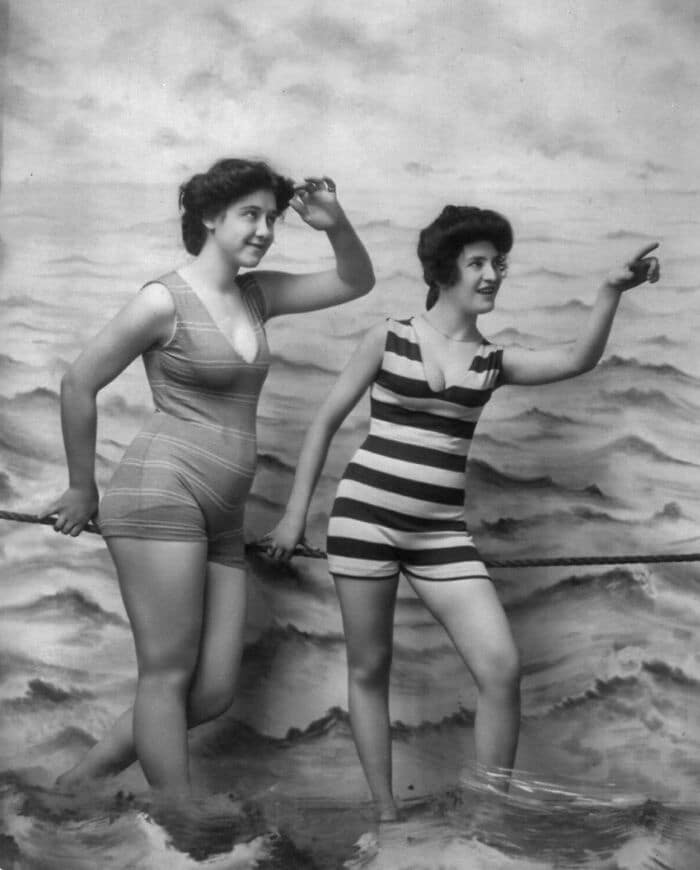


Tit-Bits From All The Most Interesting Books, Periodicals and Newspapers in The World was a British weekly magazine. It paved the way for popular journalism.
“Tit-Bits ran their competition at a time when the so-called ‘woman question’ was becoming increasingly debated in Victorian society,” Dr. Nicholson said. “Many women were beginning to push for more rights and opportunities, including the right to be defined by more than just their marriage. I think the responses Tit-Bits received — and the fact that they printed them — hints at these changing attitudes.”
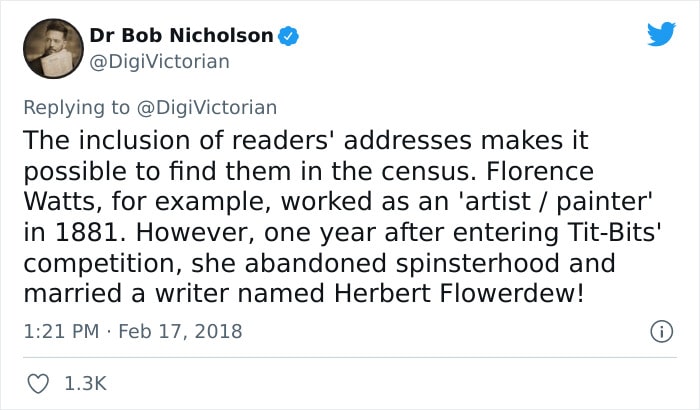
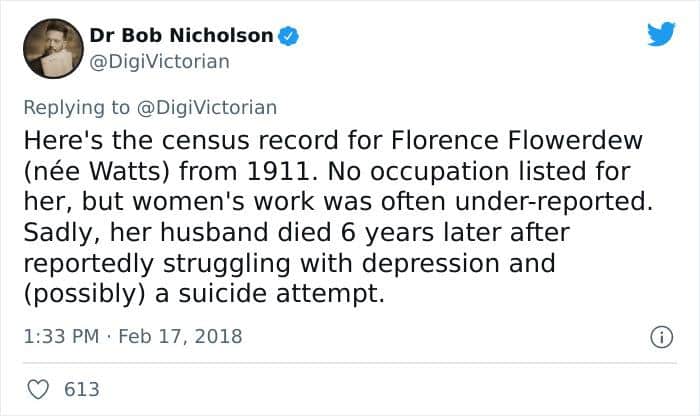
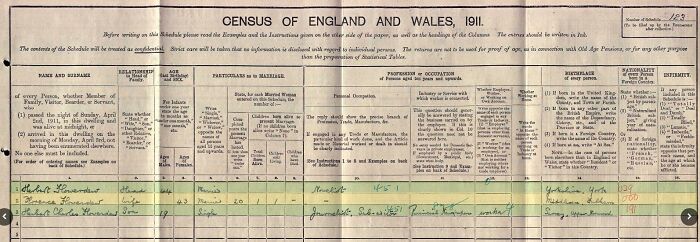
People liked the thread.


